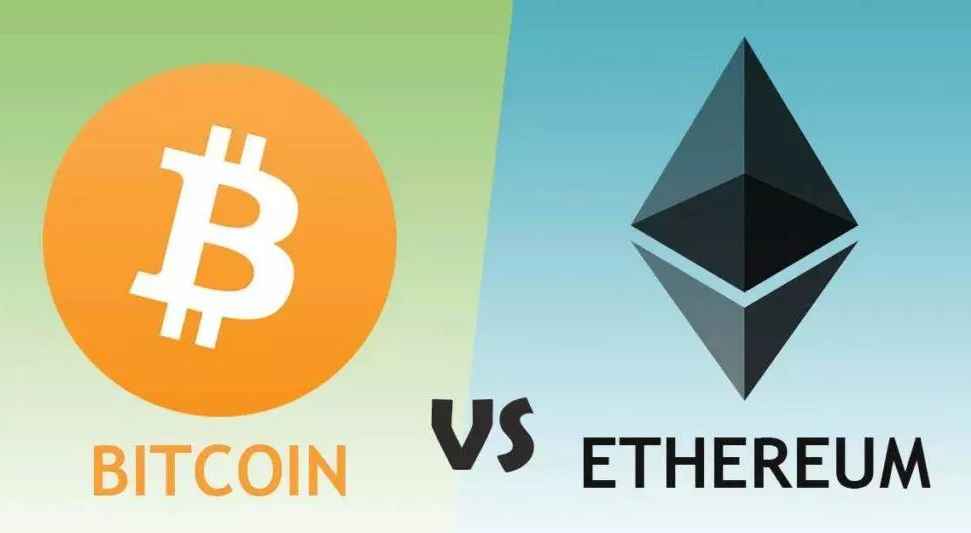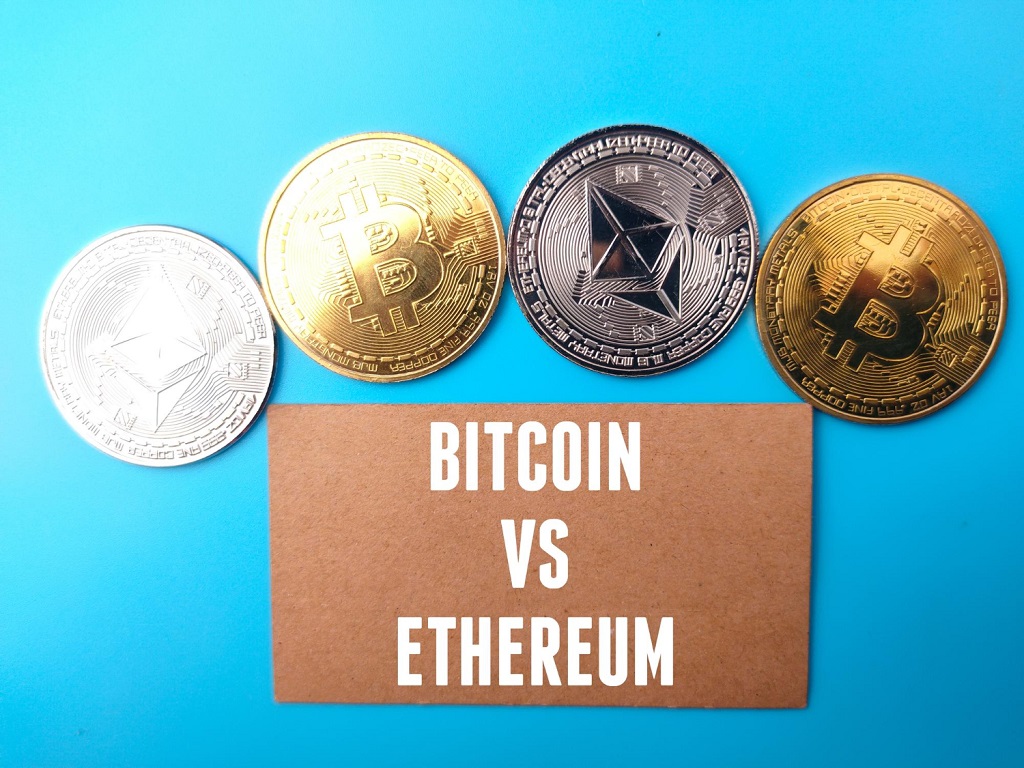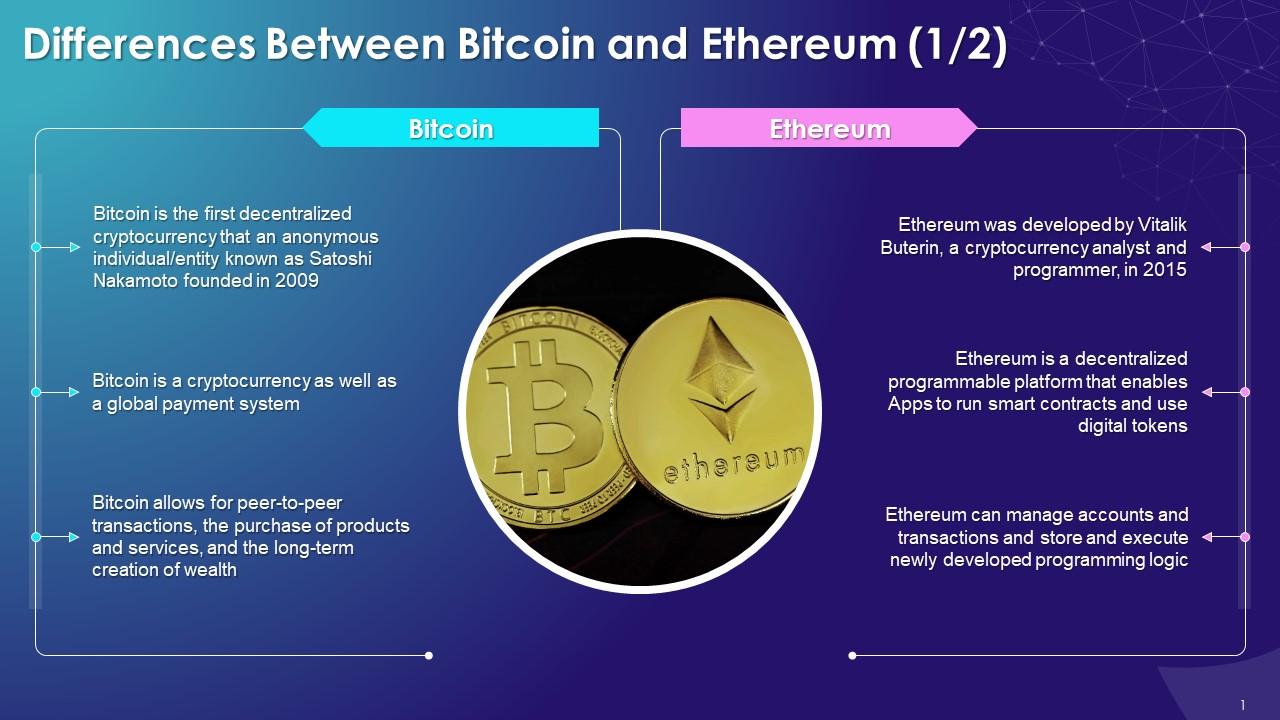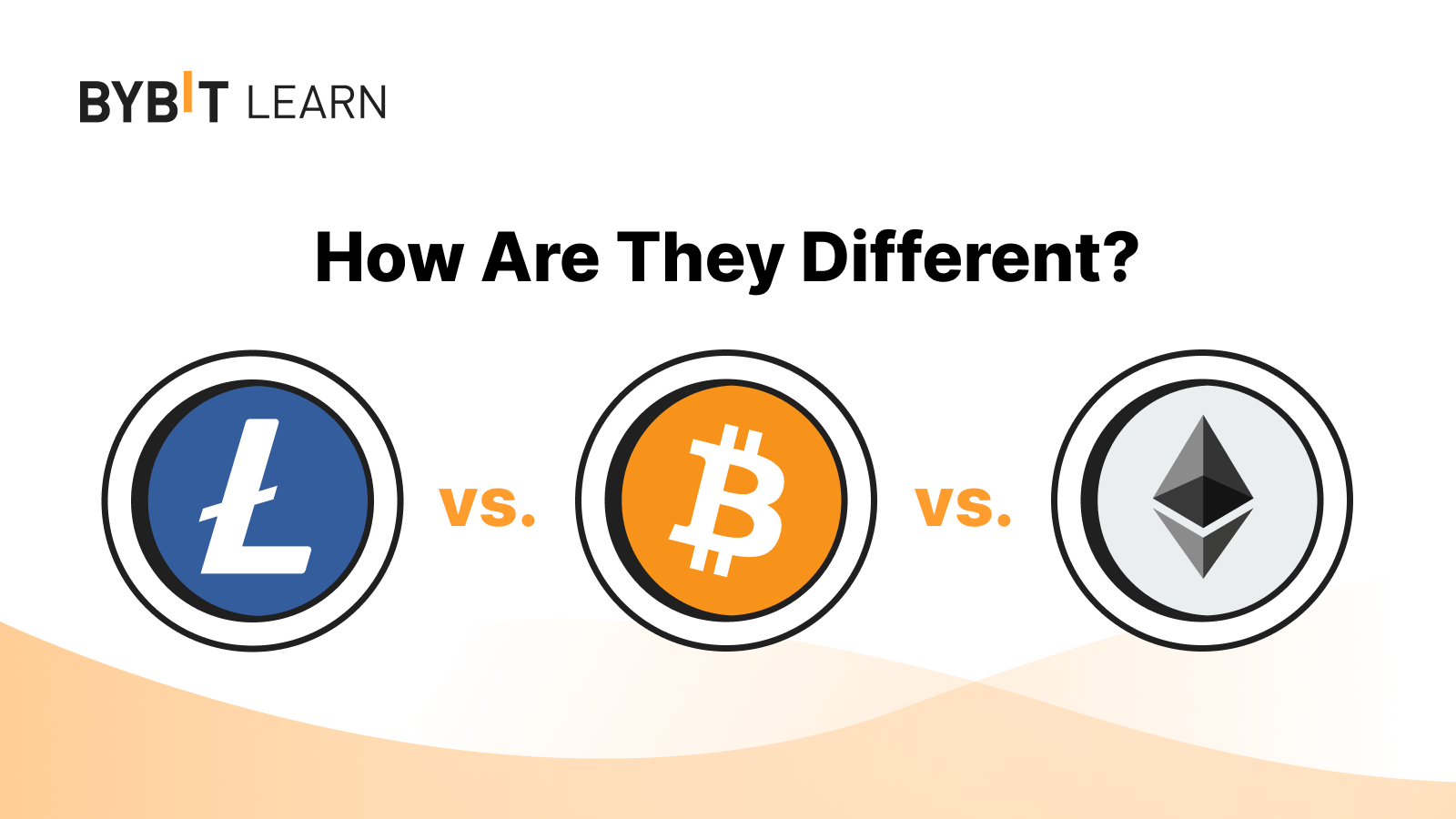Difference Between Bitcoin And Ethereum In Tabular Form
Starting with the difference between bitcoin and ethereum in tabular form, understanding these two leading cryptocurrencies is essential for anyone interested in the digital currency landscape. Bitcoin, the pioneer of cryptocurrencies, was created as a decentralized digital currency, while Ethereum introduced smart contracts and decentralized applications to the blockchain world. Both have unique features and purposes that set them apart in this ever-evolving market.
From their inception dates and technological foundations to the consensus mechanisms they use and their applications, there’s much to explore. Whether you're an investor, developer, or simply curious about cryptocurrencies, grasping the fundamental differences between Bitcoin and Ethereum will equip you with the knowledge to navigate this financial frontier effectively.
Overview of Bitcoin and Ethereum
Bitcoin and Ethereum are two of the most prominent cryptocurrencies in the digital finance landscape. While both leverage blockchain technology, they serve different purposes and have unique underlying principles. Bitcoin, introduced in 2009 by an anonymous entity known as Satoshi Nakamoto, was designed as a decentralized digital currency intended to facilitate peer-to-peer transactions without the need for intermediaries. In contrast, Ethereum, launched in 2015 by Vitalik Buterin and others, aims to provide a platform for decentralized applications (dApps) and smart contracts, expanding the utility of blockchain beyond mere transactions.The key technological differences between Bitcoin and Ethereum are primarily related to their functionalities and consensus mechanisms.
Bitcoin focuses on security and stability, whereas Ethereum prioritizes flexibility and programmability, allowing developers to create complex applications directly on its blockchain.
Consensus Mechanisms

Bitcoin employs a Proof of Work (PoW) consensus mechanism, where miners validate transactions by solving complex mathematical problems. This process ensures network security but is energy-intensive, leading to concerns about its environmental impact. As a result, Bitcoin's transaction validation can be slower and less scalable compared to newer systems.Ethereum originally utilized PoW as well, but has been transitioning to Proof of Stake (PoS) with Ethereum 2.0.
PoS reduces energy consumption by allowing validators to confirm transactions based on the amount of cryptocurrency they hold and are willing to "stake" as collateral. This evolution aims to enhance scalability while minimizing environmental concerns associated with mining.The energy efficiency of Ethereum's PoS is significantly improved compared to Bitcoin's PoW. As Ethereum continues to scale its network, it is expected to handle more transactions at a lower energy cost.
Smart Contracts

Smart contracts are self-executing contracts with the terms directly written into code, a feature that distinguishes Ethereum from Bitcoin. These contracts automate processes, reducing the need for intermediaries and enhancing transaction reliability. On the Ethereum network, smart contracts enable a wide range of decentralized applications, from financial services to gaming.Bitcoin, while robust as a currency, lacks native support for smart contracts, limiting its functionality to simple transactions.
This restriction has led to Ethereum being favored for innovative applications, such as decentralized finance (DeFi) and non-fungible tokens (NFTs).Examples of smart contract use cases on Ethereum include automated lending platforms, decentralized exchanges, and tokenization of assets, showcasing its versatility and appeal to developers.
Transaction Speed and Fees

The average transaction speed for Bitcoin is around 10 minutes, while Ethereum can process transactions in about 15 seconds. However, both networks experience fluctuating transaction fees based on network demand and congestion. Factors influencing transaction fees include the number of transactions queued, the complexity of operations, and network conditions at the time of processing.
| Cryptocurrency | Average Transaction Speed | Average Transaction Fee |
|---|---|---|
| Bitcoin | 10 minutes | $2 - $50 |
| Ethereum | 15 seconds | $0.50 - $100 |
Supply and Economic Models
Bitcoin features a capped supply of 21 million coins, creating scarcity and, over time, potentially increasing its value as demand rises. This deflationary model incentivizes hoarding, as many see Bitcoin as a digital store of value akin to gold.In contrast, Ethereum has a more flexible inflationary model, allowing for continuous supply growth to support network functionality and development. This approach fosters a dynamic ecosystem yet raises questions about long-term value retention.Economic incentives for miners in Bitcoin revolve around block rewards and transaction fees, promoting network security through mining efforts.
In Ethereum's PoS model, validators earn rewards based on their stake, which encourages holding assets while contributing to network security.
Use Cases and Applications
Bitcoin serves primarily as a digital currency and store of value, with various practical applications including:
- Peer-to-peer transactions
- Remittances
- Investment asset
Ethereum's capabilities extend further into diverse areas such as:
- Decentralized Finance (DeFi)
- Non-Fungible Tokens (NFTs)
- Supply chain management
- Identity verification
Market Capitalization and Adoption
As of October 2023, Bitcoin's market capitalization stands at approximately $600 billion, while Ethereum's is around $250 billion. The factors influencing adoption rates include technological advancements, regulatory developments, and public perception. A comparison of adoption trends reveals diverse user demographics, with Bitcoin appealing to those seeking a store of value, while Ethereum attracts developers and enterprises aiming to leverage its smart contract capabilities.
| Cryptocurrency | Market Capitalization | Adoption Trends |
|---|---|---|
| Bitcoin | $600 billion | Investment, Store of Value |
| Ethereum | $250 billion | DeFi, dApps, NFTs |
Future Developments and Roadmaps
Bitcoin is exploring upgrades focusing on scalability and privacy enhancements, such as the Taproot and Schnorr signatures. These updates aim to improve transaction efficiency and scripting capabilities, ensuring Bitcoin remains competitive in the evolving cryptocurrency landscape.Ethereum's roadmap includes significant upgrades like sharding and rollups, poised to enhance scalability and lower transaction costs. These innovations aim to ensure Ethereum can support its growing user base and an expanding ecosystem of decentralized applications.When comparing future developments, Bitcoin focuses on maintaining its status as a secure digital currency, while Ethereum is poised to further innovate and expand its multifunctional platform.
End of Discussion
In conclusion, while both Bitcoin and Ethereum have carved their niches in the cryptocurrency realm, they cater to different needs and applications. Bitcoin remains a robust store of value, often referred to as digital gold, while Ethereum continues to innovate with smart contracts and decentralized applications. As the cryptocurrency market evolves, staying informed about these differences will help you make better decisions in your investments and engagements within the blockchain ecosystem.
Questions and Answers
What is the primary purpose of Bitcoin?
Bitcoin primarily serves as a decentralized digital currency designed for peer-to-peer transactions and a store of value.
What makes Ethereum unique compared to Bitcoin?
Ethereum allows for smart contracts and decentralized applications (dApps), enabling a wider range of use cases beyond simple transactions.
Which cryptocurrency has higher transaction fees?
Transaction fees can vary, but generally, Ethereum tends to have higher fees during peak network usage compared to Bitcoin.
How does the supply of Bitcoin differ from Ethereum?
Bitcoin has a capped supply of 21 million coins, while Ethereum has an inflationary model with no fixed supply limit.
Can Bitcoin and Ethereum be used interchangeably?
No, Bitcoin and Ethereum serve different functions and are designed for distinct use cases, so they are not interchangeable.

